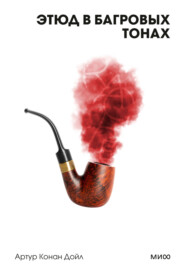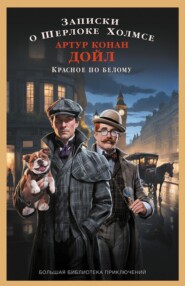По всем вопросам обращайтесь на: info@litportal.ru
(©) 2003-2025.
✖
The Dealings of Captain Sharkey, and Other Tales of Pirates
Настройки чтения
Размер шрифта
Высота строк
Поля
"The first news will get in at about midnight at earliest."
"That will be my doing."
"No, mine."
"Ha, ha! we'll settle that."
There was a pause here. Then I heard Muller's voice in a ghastly whisper, "There's only five minutes more."
How slowly the moments seemed to pass! I could count them by the throbbing of my heart.
"It'll make a sensation on land," said a voice.
"Yes, it will make a noise in the newspapers."
I raised my head and peered over the side of the boat. There seemed no hope, no help. Death stared me in the face, whether I did or did not give the alarm. The Captain had at last left the bridge. The deck was deserted, save for those two dark figures crouching in the shadow of the boat.
Flannigan had a watch lying open in his hand.
"Three minutes more," he said. "Put it down upon the deck."
"No, put it here on the bulwarks."
It was the little square box. I knew by the sound that they had placed it near the davit, and almost exactly under my head.
I looked over again. Flannigan was pouring something out of a paper into his hand. It was white and granular – the same that I had seen him use in the morning. It was meant as a fuse, no doubt, for he shovelled it into the little box, and I heard the strange noise which had previously arrested my attention.
"A minute and a half more," he said. "Shall you or I pull the string?"
"I will pull it," said Muller.
He was kneeling down and holding the end in his hand. Flannigan stood behind with his arms folded, and an air of grim resolution upon his face.
I could stand it no longer. My nervous system seemed to give way in a moment.
"Stop!" I screamed, springing to my feet. "Stop, misguided and unprincipled men!"
They both staggered backwards. I fancy they thought I was a spirit, with the moonlight streaming down upon my pale face.
I was brave enough now. I had gone too far to retreat.
"Cain was damned," I cried, "and he slew but one; would you have the blood of two hundred upon your souls?"
"He's mad!" said Flannigan. "Time's up. Let it off, Muller."
I sprang down upon the deck.
"You shan't do it!" I said.
"By what right do you prevent us?"
"By every right, human and divine."
"It's no business of yours. Clear out of this."
"Never!" said I.
"Confound the fellow! There's too much at stake to stand on ceremony. I'll hold him, Muller, while you pull the trigger."
Next moment I was struggling in the herculean grasp of the Irishman. Resistance was useless; I was a child in his hands.
He pinned me up against the side of the vessel, and held me there.
"Now," he said, "look sharp. He can't prevent us."
I felt that I was standing on the verge of eternity. Half-strangled in the arms of the taller ruffian, I saw the other approach the fatal box. He stooped over it and seized the string. I breathed one prayer when I saw his grasp tighten upon it. Then came a sharp snap, a strange rasping noise. The trigger had fallen, the side of the box flew out, and let off —two grey carrier pigeons!
Little more need be said. It is not a subject on which I care to dwell. The whole thing is too utterly disgusting and absurd. Perhaps the best thing I can do is to retire gracefully from the scene, and let the sporting correspondent of the New York Herald fill my unworthy place. Here is an extract clipped from its columns shortly after our departure from America:
"Pigeon-flying Extraordinary.– A novel match has been brought off last week between the birds of John H. Flannigan, of Boston, and Jeremiah Muller, a well-known citizen of Lowell. Both men have devoted much time and attention to an improved breed of bird, and the challenge is an old-standing one. The pigeons were backed to a large amount, and there was considerable local interest in the result. The start was from the deck of the Transatlantic steamship Spartan, at ten o'clock on the evening of the day of starting, the vessel being then reckoned to be about a hundred miles from the land. The bird which reached home first was to be declared the winner. Considerable caution had, we believe, to be observed, as some captains have a prejudice against the bringing off of sporting events aboard their vessels. In spite of some little difficulty at the last moment, the trap was sprung almost exactly at ten o'clock. Muller's bird arrived in Lowell in an extreme state of exhaustion on the following morning, while Flannigan's has not been heard of. The backers of the latter have the satisfaction of knowing, however, that the whole affair has been characterised by extreme fairness. The pigeons were confined in a specially invented trap, which could only be opened by the spring. It was thus possible to feed them through an aperture in the top, but any tampering with their wings was quite out of the question. A few such matches would go far towards popularising pigeon-flying in America, and form an agreeable variety to the morbid exhibitions of human endurance which have assumed such proportions during the last few years."
THE END
notes
1
A whale is measured among whalers not by the length of its body, but by the length of its whalebone.

















